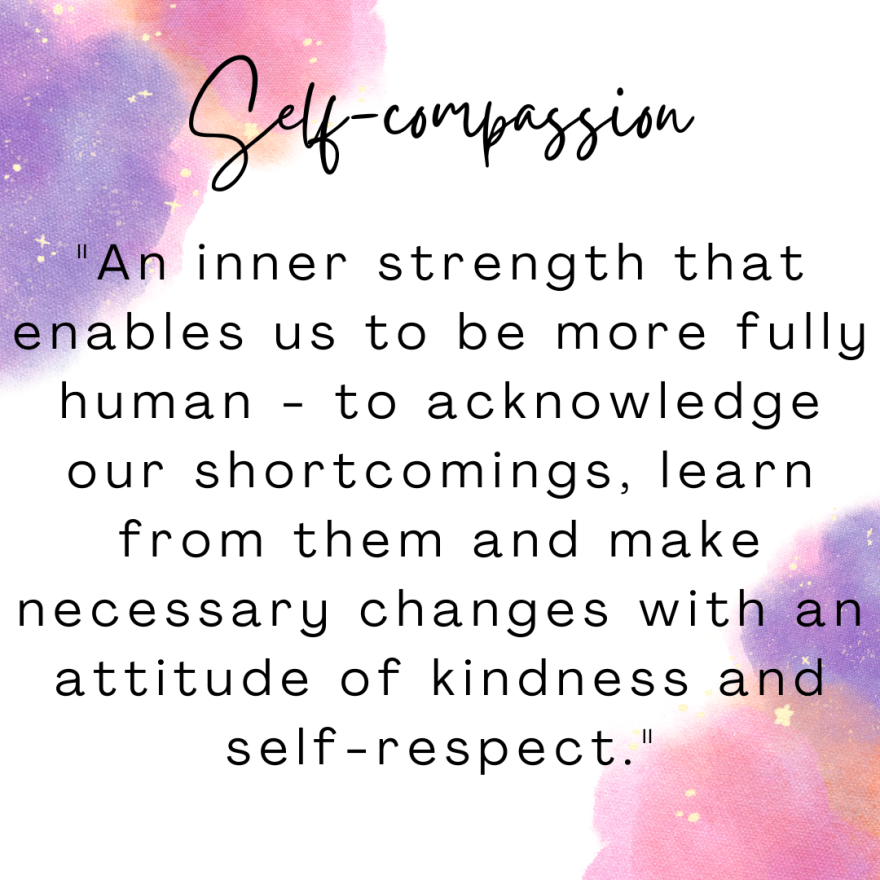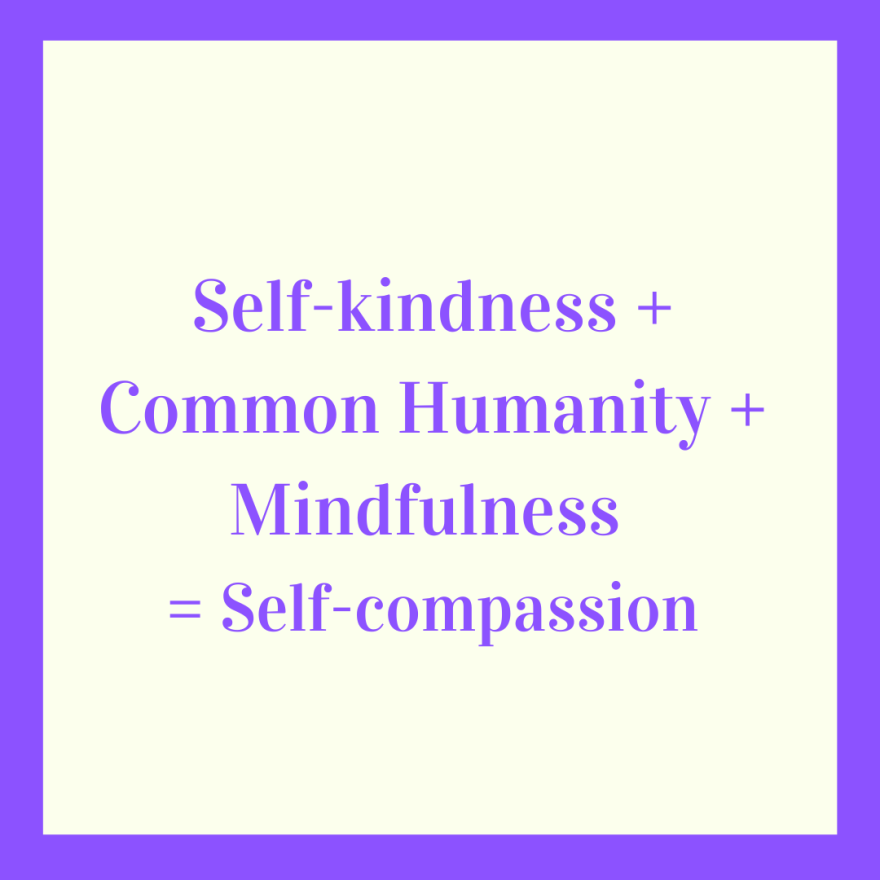|
The other day I received a direct message on Instagram. The message read: “why do you talk about self compassion when we make mistakes? self compassion is a cop out. it only makes people not want to change. a person who has ADHD needs to change!”
|
This message prompted me to make self-compassion the topic of this month’s newsletter.
|
 |
Self-compassion is a term pioneered by Kristin Neff, who defines it as having three components: self-kindness, common humanity, and mindfulness. Self-kindness towards ourselves when we make mistakes; Common humanity to remind us that we all make mistakes; Mindfulness to acknowledge how we feel without judging ourselves. These three components can be thought of as creating self-compassion in the following formula: self-kindness + common humanity + mindfulness = self-compassion.
 |
|
A student of mine defined self-compassion as “an inner strength that enables us to be more fully human - to acknowledge our shortcomings, learn from them, and make necessary changes with an attitude of kindness and self-respect.” Save this definition. It is a keeper!
|
Let’s go back to the message I received. “Is self-compassion a cop out strategy?” Science has shown that self-compassion isn’t a cop out. It’s actually the opposite. Self-compassion lets us explore our default mechanism to managing difficulties. As we observe (without judgement) and become aware of our innate patterns we are then able to learn and try new strategies. Dr. Neff explains, “What self-compassion does is actually give you that sense of safety to be able to say, ‘Okay, I blew it. I feel so bad. Well, it’s human. People make mistakes. How can I repair this?’”
In 2012, psychologists at the University of California Berkeley conducted research to answer the second part of the message I received. In the study, college students took a difficult exam. Everyone did poorly but, some students after the test received a message of self-compassion. Another group was given a self-esteem pep talk and the last group didn’t receive a message. All the students were given a chance to study for as long as they wanted to take a new test. Can you guess the results this second time around? The self-compassion group studied the longest and showed the greatest motivation to improve (they also scored slightly higher!).
“Research shows that self-compassionate people have high personal standards; they just don't beat themselves up when they fail.” This means that they are less afraid of failure and are more likely to persist in their efforts after failing. (The Mindful Self Compassion Program, Germer and Neff 2021)
| The great thing about self-compassion is that it’s a skill we can learn. Remember the formula next time you make a mistake, and the self-critic becomes loud. Stop. There is another choice. You have the formula. |
 |
Be well,
Ana Isabel Sánchez
   
|